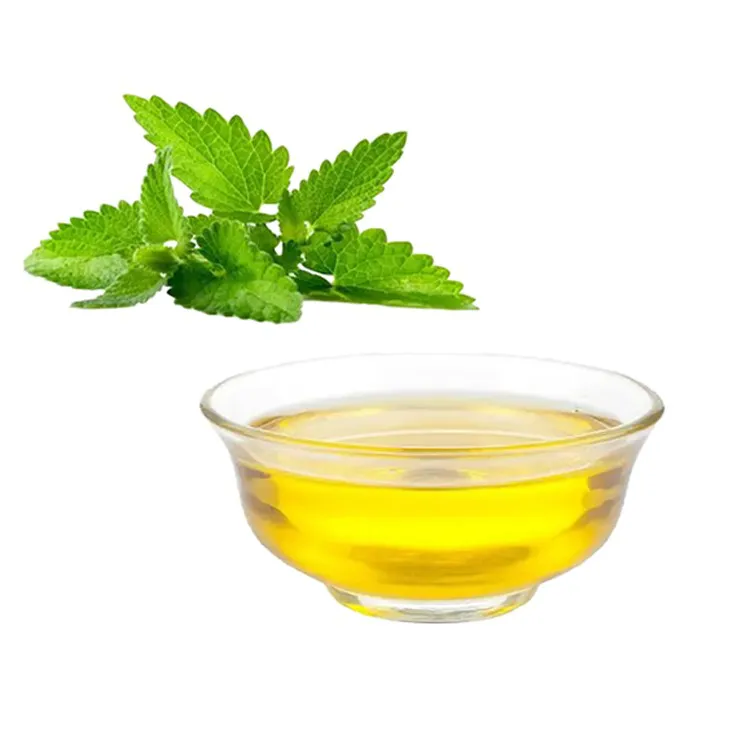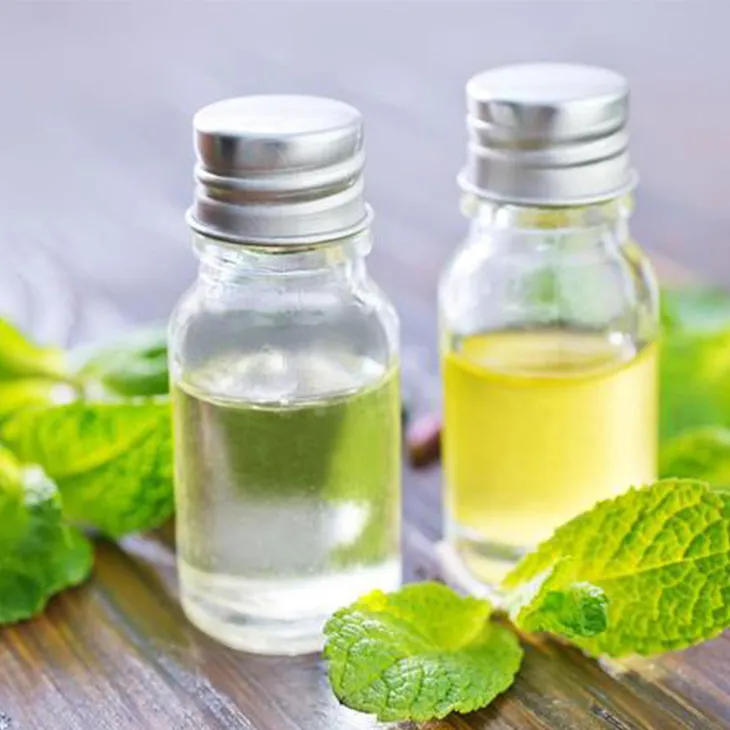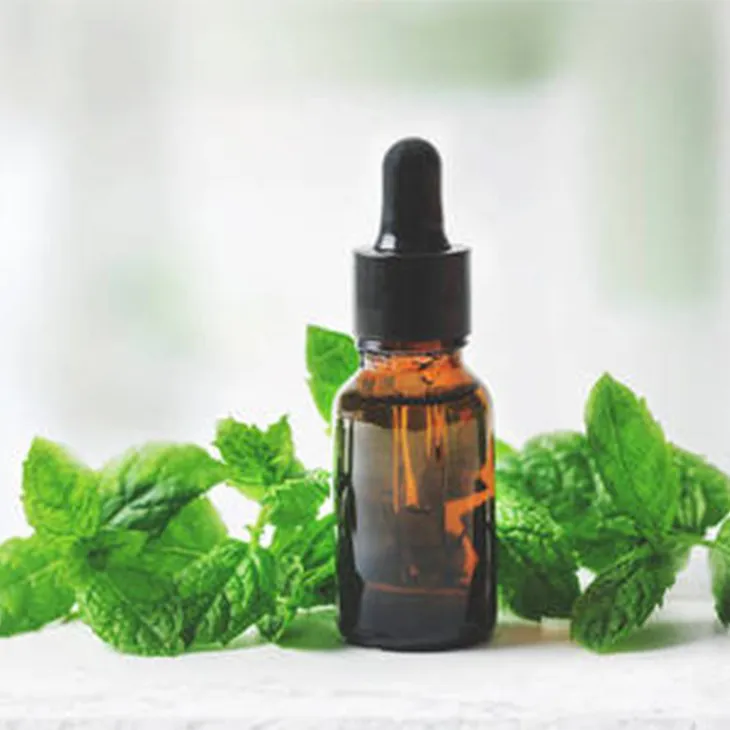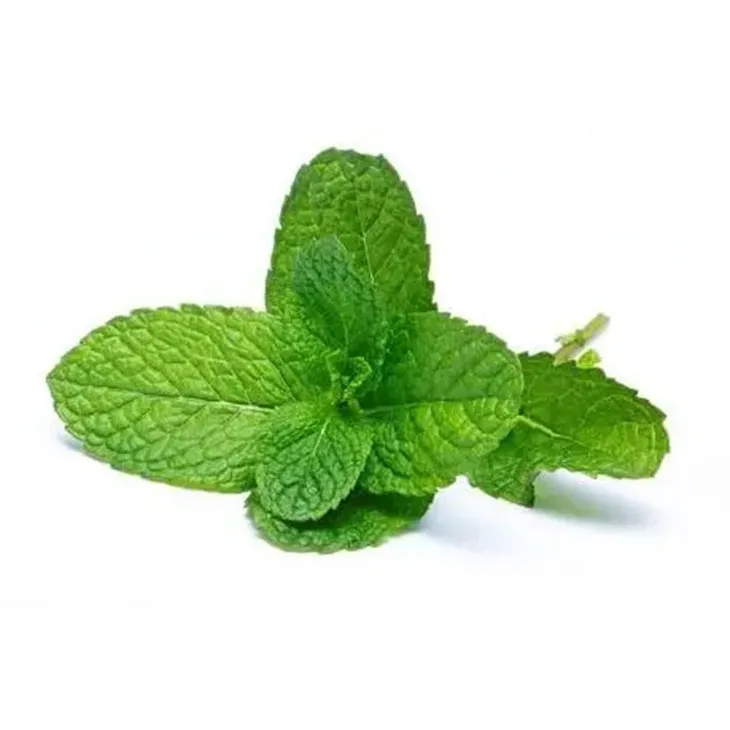- 0086-571-85302990
- sales@greenskybio.com
The Benefits of Peppermint Oil: An Impressive Extract on the Kitchen Table.
2024-11-12

Introduction
Peppermint Oil is a remarkable natural extract that has found its way onto the kitchen table for various reasons. Its refreshing and distinct aroma, combined with its unique flavor profile, makes it a versatile addition to the culinary world. But Peppermint Oil is not just about enhancing the taste of food; it also offers a plethora of health benefits. In this article, we will explore the many ways in which Peppermint Oil can be beneficial both in the kitchen and for overall well - being.

Peppermint Oil in the Kitchen
Enhancing Flavor
One of the most obvious benefits of peppermint oil in the kitchen is its ability to enhance the flavor of a wide variety of dishes. Peppermint has a cool, refreshing taste that can add a new dimension to both sweet and savory recipes.
- In sweet treats like ice cream, peppermint oil can be used to create a mint - chocolate flavor combination that is loved by many. Just a few drops of the oil can transform a plain vanilla ice cream into a refreshing and indulgent treat.
- For savory dishes, it can be added to salads. A drop or two of peppermint oil in a vinaigrette dressing can give the salad a unique and invigorating flavor. It pairs well with fresh greens, fruits like strawberries or oranges, and nuts, creating a complex and interesting taste profile.
- Peppermint oil can also be used in baking. In cakes and cookies, it can add a subtle minty flavor that is both unexpected and delightful. For example, in chocolate brownies, a small amount of peppermint oil can cut through the richness of the chocolate and add a refreshing note.
Creative Culinary Uses
Peppermint oil can be used in some truly creative ways in the kitchen.
- It can be used to make infused oils or vinegars. By adding a few drops of peppermint oil to a good - quality olive oil or vinegar, you can create a unique ingredient for cooking or dressing. The infused oil can be used for sautéing vegetables or drizzling over grilled meats, while the infused vinegar can be used in marinades or as a finishing touch on salads.
- Another creative use is in making homemade candies. Peppermint oil can be combined with sugar and other ingredients to make minty hard candies or soft, chewy gummies. These homemade candies are not only delicious but also free from many of the artificial additives found in store - bought versions.
- Peppermint oil can also be used to flavor beverages. In hot tea, it can add a refreshing and soothing element. A cup of herbal tea with a drop of peppermint oil can be a great way to relax after a long day. In cold drinks like lemonade or iced tea, it can give a cool and minty twist.

Health Benefits of Peppermint Oil
Respiratory Health
Peppermint oil has been known to be beneficial for respiratory problems.
- It has menthol, which gives it a cooling effect. When inhaled, it can help to clear the nasal passages. For those suffering from congestion due to a cold or allergies, using peppermint oil in a diffuser can provide relief. The vapors can open up the sinuses and make breathing easier.
- Peppermint oil can also soothe a sore throat. Gargling with a solution made by adding a drop of peppermint oil to warm water can reduce inflammation and provide a cooling sensation that eases the pain.
Digestive Aid
Peppermint oil is also great for the digestive system.
- It can help relieve indigestion. When taken in small amounts, it can relax the muscles of the gastrointestinal tract, reducing spasms and discomfort. This is especially useful after a heavy meal.
- Peppermint oil can also be helpful for those with irritable bowel syndrome (IBS). Studies have shown that it can reduce the symptoms of IBS such as abdominal pain, bloating, and diarrhea. However, it is important to consult a doctor before using peppermint oil for IBS as it may interact with other medications.
Stress Relief
The aroma of peppermint oil has a calming effect on the mind and can help relieve stress.
- Using peppermint oil in a diffuser in a work or study area can create a more relaxed atmosphere. The refreshing scent can help to improve concentration and reduce feelings of anxiety.
- It can also be used in aromatherapy massages. When combined with a carrier oil like jojoba or almond oil, peppermint oil can be massaged onto the temples or the back of the neck to relieve tension headaches and reduce stress.

How to Choose and Store Peppermint Oil
Choosing the Right Peppermint Oil
When choosing peppermint oil, it is important to consider a few factors.
- Look for pure peppermint oil. Avoid products that contain a lot of additives or are labeled as "fragrance oils" as these may not be suitable for consumption or have the same therapeutic benefits. Pure peppermint oil should be clearly labeled as such and should list peppermint (Mentha piperita) as the main ingredient.
- Check the quality of the oil. High - quality peppermint oil should have a strong, fresh minty aroma. If the oil has a weak or off - putting smell, it may be of lower quality.
- Consider the source. Organic peppermint oil is a good option as it is grown without the use of pesticides and other harmful chemicals. This can be especially important if you plan to use the oil for both culinary and health purposes.
Storing Peppermint Oil
Proper storage of peppermint oil is essential to maintain its quality.
- Peppermint oil should be stored in a cool, dark place. Exposure to heat and sunlight can cause the oil to degrade and lose its potency. A pantry or a cupboard away from the stove or other heat sources is a good storage location.
- Keep the oil in a tightly sealed container. This helps to prevent oxidation, which can also affect the quality of the oil. Glass bottles with a dropper or screw - cap are ideal for storing peppermint oil.
- When stored properly, peppermint oil can last for a long time. However, it is a good idea to check the aroma and quality of the oil periodically. If the smell has changed significantly or the oil has become cloudy, it may be time to replace it.

Precautions and Considerations
While peppermint oil has many benefits, there are also some precautions to keep in mind.
Internal Use
- When using peppermint oil internally, it should be done in moderation. Although it is generally safe in small amounts, excessive consumption can cause side effects such as heartburn, nausea, or allergic reactions. It is important to follow the recommended dosage guidelines.
- Peppermint oil should not be given to infants or young children internally without consulting a doctor. Their digestive systems are more sensitive, and the oil may cause harm.
External Use
- When using peppermint oil externally, it should always be diluted with a carrier oil. Applying undiluted peppermint oil to the skin can cause irritation, redness, or burning. A common ratio for dilution is 1 - 2 drops of peppermint oil per teaspoon of carrier oil.
- Some people may be more sensitive to peppermint oil and may experience an allergic reaction even when diluted. If you notice any signs of irritation or an allergic reaction such as itching, swelling, or a rash, stop using the oil immediately and consult a doctor.
Interactions with Medications
- Peppermint oil may interact with certain medications. For example, it may interfere with drugs used to treat acid reflux or heartburn. If you are taking any medications, it is important to consult your doctor before using peppermint oil to avoid any potential interactions.
Conclusion
Peppermint oil is truly an impressive extract that has a lot to offer both in the kitchen and for health. Its ability to enhance the flavor of food, along with its numerous health benefits, makes it a valuable addition to the kitchen table. However, it is important to use it safely and with proper consideration of the precautions. By choosing high - quality peppermint oil and storing it correctly, you can enjoy all the benefits that this wonderful extract has to offer.
FAQ:
What are the main uses of peppermint oil in the kitchen?
Peppermint oil can be used to flavor various dishes in the kitchen. It can be added to desserts like ice creams or cakes to give a refreshing taste. It can also be used in savory dishes, for example, in some meat marinades to add a unique flavor. Additionally, it can be used in making refreshing drinks such as herbal teas.
How does peppermint oil help with respiratory problems?
Peppermint oil contains menthol, which has a cooling and soothing effect. When inhaled, it can help to clear the nasal passages, relieve congestion, and reduce coughing. It may also have a mild anti - inflammatory effect on the respiratory system, which can ease breathing difficulties.
Can peppermint oil be used directly in cooking?
Peppermint oil is very concentrated, so it should be used sparingly when cooking. It is often best to dilute it with a carrier oil (such as olive oil) before adding it to food. However, a very small amount can be used directly in some recipes, but it's important to be cautious as it can easily overpower the other flavors if too much is used.
What are the other health benefits of peppermint oil apart from respiratory problems?
Peppermint oil may also help with digestive problems. It can relieve indigestion, bloating, and stomach cramps. It has been shown to have antimicrobial properties, which may help in fighting off certain infections in the body. Some people also use it topically to relieve muscle pain and headaches, as it has a cooling and numbing effect.
How should peppermint oil be stored in the kitchen?
Peppermint oil should be stored in a cool, dark place, away from direct sunlight and heat sources. It is best to keep it in a tightly sealed container to prevent evaporation and oxidation. A pantry or a cupboard away from the stove is a good storage location.
Related literature
- The Therapeutic Properties of Peppermint Oil"
- "Peppermint Oil in Culinary and Medicinal Applications"
- "Beneficial Effects of Peppermint Oil on Health and Wellness"
- ▶ Hesperidin
- ▶ citrus bioflavonoids
- ▶ plant extract
- ▶ lycopene
- ▶ Diosmin
- ▶ Grape seed extract
- ▶ Sea buckthorn Juice Powder
- ▶ Beetroot powder
- ▶ Hops Extract
- ▶ Artichoke Extract
- ▶ Reishi mushroom extract
- ▶ Astaxanthin
- ▶ Green Tea Extract
- ▶ Curcumin Extract
- ▶ Horse Chestnut Extract
- ▶ Other Problems
- ▶ Boswellia Serrata Extract
- ▶ Resveratrol Extract
- ▶ Marigold Extract
- ▶ Grape Leaf Extract
- ▶ blog3
- ▶ blog4
- ▶ blog5
-
Organic Tongkat Ali extract powder factory.
2024-11-12
-
How to make powder with ashwagandha extract.
2024-11-12
-
Rosehip extract manufacturers from China.
2024-11-12
-
The best cat's claw extract in nature.
2024-11-12
-
Chinese Dandelion Leaf Extract Suppliers.
2024-11-12
-
Tongkat Ali Extract Powder
2024-11-12
-
Kidney Bean Extract
2024-11-12
-
American Ginseng Root Extract
2024-11-12
-
Okra Extract
2024-11-12
-
Cocoa Extract
2024-11-12
-
Shikone Extract
2024-11-12
-
Honeysuckle Pollen
2024-11-12
-
Panax Ginseng Leaf Extract
2024-11-12
-
Gynostemma pentaphyllum extract
2024-11-12
-
Lemon Extract
2024-11-12





















